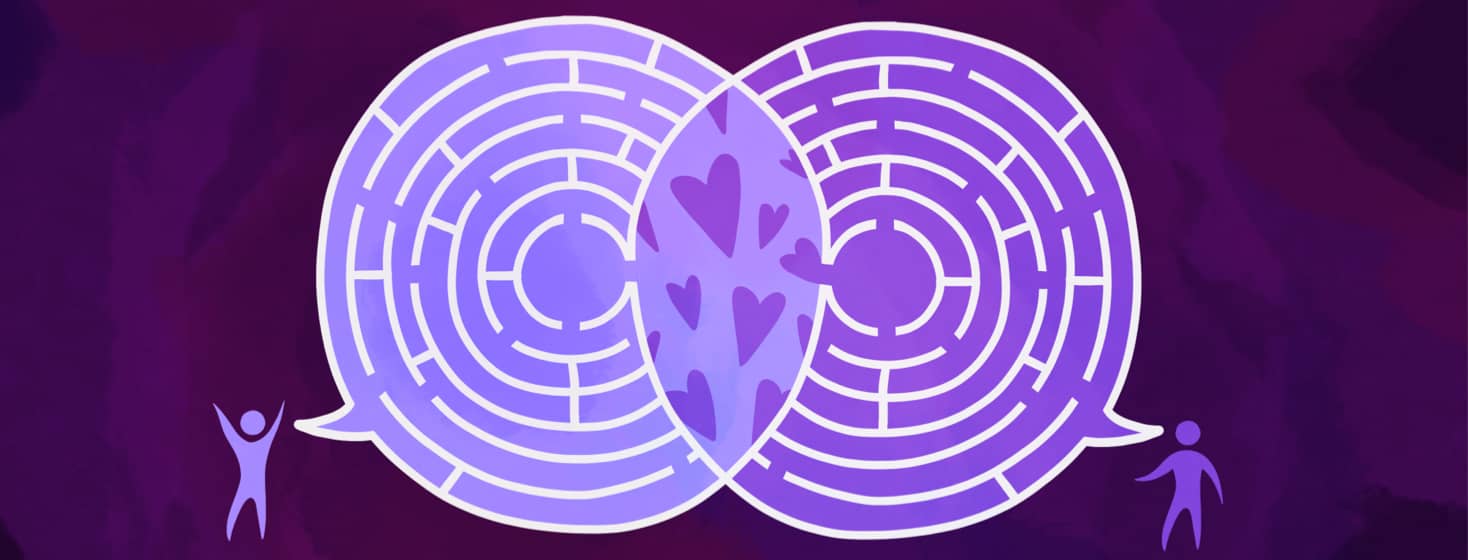Understanding a Loved One With Early-Onset Alzheimer's
Mental health professionals teach a skill that is called "therapeutic communication." It encourages the participants to frame their responses in a way that states how they personally feel.
"I feel" statements express how the receiver of the message internalizes what has been said to them. The goal is to express your own feelings, not to point the finger at the person who made the comment. This can be demonstrated in several different ways; however, I am going to share with you some of my own "I feel" statements.
Using therapeutic communication to understand me
Since being diagnosed with early-onset Alzheimer's disease (EOAD), this task has proven to be somewhat difficult for me to accomplish. It isn't because I don't know how to express what I am feeling. It's because I don't want to let people know how I am affected by the words that are being said.
Maybe I am still trying to hold on to the perception that I am the same person I have always been and completely capable of accomplishing whatever I set my mind to do. Maybe it is to hide the truth that I can't always complete the task.
The following are a few "I feel" statements that go through my head. I have not reached the place where I feel comfortable saying them out loud. My hope in this is to educate and hopefully share an insight that would be helpful to the family and friends of someone with EOAD.
This is a change for our families, too
With the drastic change that has happened in our family in the past year, there have been some pretty large learning curves. I intend to offer encouragement to families dealing with this disease.
This disease does not affect the patient only. The family as a whole needs help to learn new information and new ways of communicating using skills and language that may feel foreign to some people.
I feel embarrassed and incompetent
When I am asked to complete a task that I don't feel capable of, I feel embarrassed and incompetent.
This is the most difficult thing for me to deal with. I have always been the one who people come to for help. My favorite part of nursing was the education piece.
I loved educating parents about their children and teaching them skills that would benefit their families. My wife has never known me any differently. How is she, or any of my family members, supposed to know how I am feeling? My biggest challenge lately is coordinating a multi-step task.
Anything but normal
With the change in our financial situation and loss of income, we have been trying to be more frugal and cut down on unnecessary spending and monthly bills. My wife asks me to call the phone company, tax office, or insurance provider, which seems pretty normal. To me, this is anything but normal.
I feel my heart start beating hard, my ears feel hot, and my breathing increases. All of these things are still relatively easy for me to hide, but underneath it all is the feeling of embarrassment because I don't want to say, "Please don't make me do that."
I feel incompetent and useless. If I verbalize that, it would feel like humiliation.
I feel angry and irritated
When someone says to me, "Remember?" I feel angry and irritated.
This seems so benign. It is something we all say. Saying this to someone who literally cannot remember something they said 2 minutes ago is not helpful. I have trouble remembering what I was talking about and will stop mid-sentence.
I am normally a very kind and loving person; however, this word makes me feel angry. It is irritating to me to hear that word, and I have a hard time not snapping back at someone to remind them that it is pretty expected with my illness.
Sarcasm runs deep with this one, and I often want to say something not constructive or helpful at all.
I feel guilty and lazy
When asked if I completed something specific during the day and I forget, I feel guilty and lazy.
I struggle with this one daily. I feel like I have to "earn my keep." There is nothing that my wife or family have done to make me feel lazy in any way. This is all on me, but it is helpful to remember that it can be a struggle for those with EOAD.
Dual diagnoses of anxiety and depression are real, and there are days I barely make it from the bed to the couch. I see the changes in myself, and it scares me.
As we learn better, we do better
I know how hard it is to watch a loved one change right in front of your eyes. I watched my mother go down the same road. If I had known then what I know now about this disease, I would have tried a little harder.
It is hard to be a family member watching this devastating disease change your loved one. Show your loved one and yourselves a little grace and mercy as you navigate a new normal and learn from each other.

Join the conversation